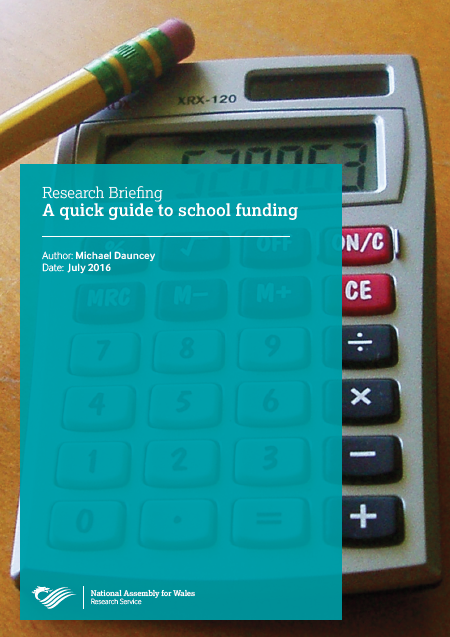National Assembly for Wales Research Service
This Research briefing explains how funding is allocated to schools. It also includes statistics on current and recent school funding levels, as well as some commentary of the policy context.
In Wales, schools that are maintained by the state are funded by local authorities rather than directly by government. There are three main steps in the setting of school budgets.
- Firstly, the Welsh Government provides each local authority with its Revenue Support Grant. Each local authority uses this to fund the range of services it provides, including education.
- Secondly, local authorities set three tiers of education budget, one of which is the money that is given directly (delegated) to schools.
- Thirdly, the local authority sets the individual budget for each school it maintains.
The Welsh Government also uses some education budgets to support certain policies and priorities, for example the Pupil Deprivation Grant.
The money local authorities receive through the Revenue Support Grant is un-hypothecated. This means that local authorities decide themselves how much to spend on education and specifically school budgets, along with all of the other services they provide.
In 2016-17, local authorities have budgeted £2.519 billion for expenditure on schools. On average across Wales, 84% of this funding is ‘delegated’ to schools themselves through their individual school budgets.
The Welsh Government has had a stated priority of prioritising school budgets since Carwyn Jones became First Minister in late 2009. Spending on schools was protected during the Fourth Assembly (2011-2016), meaning that it increased by at least one percentage point higher than the change in the ‘Welsh block’ grant from Westminster.
Following the Assembly election in May, the Welsh Government has again pledged to invest in school improvement (an additional £100 million during the Fifth Assembly) and the new Cabinet Secretary for Education, Kirsty Williams, wants to ‘increase the pace of improvement and change’.
A Quick Guide to School Funding (903KB)





